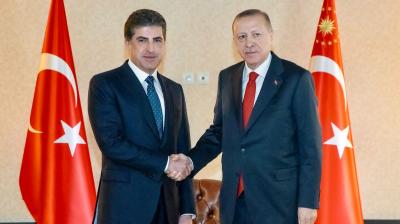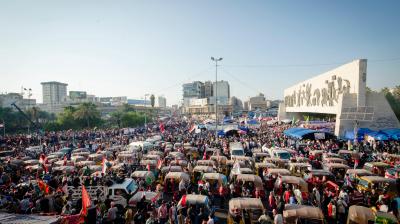Tooth and Nail: Elite Resistance Against Reform in Iraq
This publication has previously been published by 1001 Iraqi Thoughts.
Viewed as a system, Iraq’s political elite networks have demonstrated extraordinary resilience in withstanding two major shocks to their modus operandi of ruling by consensus that shares public authority and resources between them. The extra-elite shock of the Tishreen popular protests of 2019 and calls for radical change against the ruling elite were crippled by a mix of repression, co-optation, and marginal reforms. The intra-elite shock of Muqtada Sadr’s recent threat to form a majority government, together with his allies Masoud Barzani and Mohammed Halbousi, has been brought to a standstill by the Coordination Framework. Government formation remains stalemated, with the most likely ultimate outcome being a new consensus government. This will allow dysfunctional governance to persist with little prospect of improvement. A rethink of pathways for political reform and renewal is needed.
Much recent political analysis of Iraq has centred on the bid by Messrs. Sadr, Barzani and Halbousi to keep a number of Iraqi political parties and politicians, in particular Nouri Al-Maliki, out of the next government. But while the choreography of the associated events has received ample coverage, their relevance to the performance of Iraq’s political system as a whole has not. This analysis seeks to fill the gap by viewing Sadr’s efforts to create a majoritarian government as a shock to the hitherto prevailing practice of governance by elite consensus. It followed in the wake of another shock to Iraq’s political system, namely the 2019 Tishreen protests. What does the resilience of Iraq’s political elite networks to both shocks tell us about the prospect for political renewal and reform in Iraq?
Read full publication.
Follow @ErwinVeen on Twitter.






